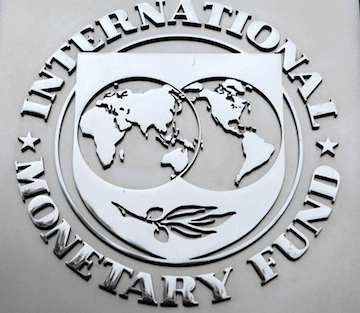Group commends Ghana, IMF for programme extension
 The Civil Society Platform on the IMF Programme says it commends the Ghana government and the Executive Board of the International Monetary Fund (IMF) for extending the country’s Extended Credit Facility arrangement with the Fund by a year, because it is in the interest of the country.
The Civil Society Platform on the IMF Programme says it commends the Ghana government and the Executive Board of the International Monetary Fund (IMF) for extending the country’s Extended Credit Facility arrangement with the Fund by a year, because it is in the interest of the country.
“The Civil Society Platform believes the programme extension is in the best interest of the country, as it will afford government time to work towards attaining the overall programme objectives of restoring debt sustainability and macroeconomic stability as well as foster a return to high growth and job creation, while protecting social spending.
Admittedly, the programme extension in itself will not translate into successful completion unless the government is committed to fiscal discipline and good governance,” it said.
The group further indicates that it believes effective implementation of the current arrangement with the IMF will strengthen the country’s own institutions of fiscal restraint, regain policy credibility as well as chart new sustainable pathways so that Ghana, hopefully, will no longer revert to the IMF for another Fund-supported programme.
The IMF approved the extension during a meeting between the government of Ghana and the Executive Board of the Fund, last week.
In April 2015, the Ghana government signed a $918 million credit facility agreement with the International Monetary Fund (IMF), the three-year arrangement under the Extended Credit Facility (ECF) was in support of the country’s medium-term economic reform programme.
Under the programme, the IMF sought to support growth and help reduce poverty by restoring macroeconomic stability through an ambitious and sustained fiscal consolidation, a prudent debt management strategy with improved fiscal transparency, and an effective monetary policy framework.
Secondly, the programme foresaw a pick-up in economic growth, starting in 2016, supported by expected increases in hydrocarbon production. Lower inflation and interest rates, combined with a stable exchange rate environment that would help support private sector activity.
The programme also projected that increased oil exports and lower oil imports on the back of domestic gas production will support the improvement in the current account, which together with the surpluses on the financial and capital account will help build up gross reserves to a more adequate level over the medium term.
By Emmanuel K. Dogbevi
